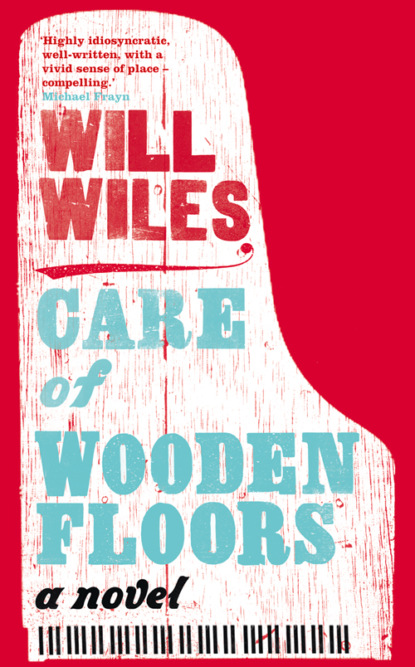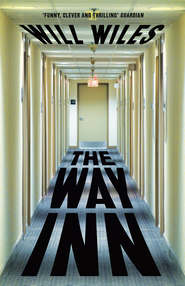По всем вопросам обращайтесь на: info@litportal.ru
(©) 2003-2024.
✖
Care of Wooden Floors
Автор
Год написания книги
2018
Настройки чтения
Размер шрифта
Высота строк
Поля
There was a slip of paper inside the case.
I hope you enjoy it! – O.
(There is better to come when Dewey is finished.)
How nice of him, I thought, or at least began to think as the sentiment stopped dead in my mind, like the needle being ripped off the surface of an old vinyl LP. This wasn’t nice, or if it was nice it was nice in a sinister spectrum of nice that I did not have the ability to see. How many of these notes were there? Briefly, the thought of ripping the place apart occurred to me, before I shook it from my head. It was just creepy, not threatening, and no reason to go insane. And if you must go insane it’s best to have a reason. If anything, Oskar was exposing a mental weakness of his own. I should feel superior.
The CD tray of the stereo was still sticking out, pornographically exposed. A tongue, a seedy player. I put in the disc of Variations and closed it, then scrumpled up the little note and dropped it in the bin. Was that a mistake? Perhaps I should have left the note in situ, so that Oskar would not know that I had been listening to his music. But the note had made clear that he welcomed my listening (‘I hope you enjoy it’), so maybe it was good to show interest. Also, if I put the note back now, I would have to smooth it out first, and it would be obvious that I had opened the case, screwed up the note, and then returned it, an obviously lunatic course of events. In any case, maybe the notes were Oskar’s way of keeping track of exactly where I had been in the flat. Faced with control-freakery of that order, what was the polite course – conceal traces, or helpfully leave them where possible?
But it was impossible to second-guess tactics of this kind. If they really were tactics; there was the strong possibility that Oskar’s actions were entirely guileless and friendly, and my reaction was the aberration. ‘Crazy,’ I said to myself softly.
Play. Oskar’s composition whizzed up in the player – his talent began its exhibition. The opening was very simple, a low metronomic note; then, with a higher double-note that sounded almost exactly like a tram bell, the piece suddenly became far more complex. What appeared to be three, or even four, different elements within the tune headed off in various directions, obscuring the composition with apparent chaos, then meeting and intersecting. They were simple, repetitive building blocks, like the beating of metal wheels over points, but at some moments it was difficult to tell how many pianos were involved.
Originally, of course, only the piano in this room had been involved. How did one do that – hear music that is nowhere but inside, and snare it, note by note? Was Oskar a genius? I had no way to tell. Being un-musical, a six-note advertising jingle is a work of alchemical, transcendent skill to me. But Oskar was clearly gifted, set apart from all but a tiny fraction of men and women. An agonising wash of inferiority swept over me – what had I ever done? Here was Oskar’s skill, picked out in Dolby clarity. Thanks to my work, many London residents now knew the phone number of their borough pest control officer, and what to do with discarded white goods. I like to think that I had invested my work with a little élan, but it remained the case that if I had not existed, those leaflets would merely have been written by someone else.
I regarded the piano with a mixture of curiosity and awe. It was all bulk, mixed curved and straight lines, reticent surfaces and concealed capabilities, like a stealth bomber. Do not play with the piano, Oskar had said. That presumptuous ‘with’ – of course, you won’t be able to play the piano, the most that can be expected is that you will play with it, like a child, and you shouldn’t even do that.
With as much care as I could muster, I opened the top of the piano and propped it up. There were its workings, complicated but unmysterious, ranks of sleeping soldiers, a harp set on its side. I hit a key and one of the hammers leapt up like toast out of a toaster, a note that gatecrashed the still-playing CD. Such a clear sound from a congregation of clumsy elements – wood, string, felt. Another note, clear and anachronistic in the music.
A strident machine bleat tore the calm, sending a jug of iced water down my spine. I came very close to dropping my glass, and had it not been empty, I would have spilled some of its contents. To be careful, I put it back on the desk, and as I did so the electronic shriek repeated. The phone was ringing. What does one do in these circumstances? Answer another man’s phone? It might be Oskar – what time was it in Los Angeles? My great fear was that, if I answered the phone, the person on the other end of the line might not speak English, and I would be taken for an intruder and the police would be summoned. How likely was this?
Third ring. Ring? It was like the death cry of a robot seagull. Eastern Bloc engineering, no doubt modified from the radiation leak alarm on a nuclear submarine.
Fourth ring. If it was Oskar, it was best to seem ‘in’, guarding the flat. If it was a non-Anglophone, I would just repeat Oskar’s name like an idiot. I caught the phone in the first half-second of the fifth ring, an assonant hiccup cut short.
‘Hello?’
A crackling, long-distance pause, the hiss of dust-covered copper cables. ‘Hello, hello, it is Oskar.’
‘Hello, Oskar. How are you?’
‘I am fine, I think.’ Electric emptiness loomed behind his words, and threatened to overwhelm them. I started to do mental arithmetic; Los Angeles is seven hours behind London, and I was two hours ahead; it was past 1 p.m. … this was wrong.
‘What time is it there?’
‘It is late. Or early. I am jet-lagged. Are you listening to my music?’
Variations was still on. There was no room for ‘no’ in Oskar’s question. ‘Yes. It’s very good.’
‘Hrm. Is everything OK in the apartment?’
My eye strayed to the cats on the sofa and the stain on the floor. The stain was actually hidden from me by the coffee table, but I felt I could still see it; a flash burn on the retina, always in centre view until you tried to look at it, when it swam away.
‘Yes, yes, fine. I meant to ask …’
‘Yes?’
‘You mentioned a cleaner – when do they come?’
‘Does something need to be cleaned?’
Yes, everything, always. ‘No, but I just thought I should know in case I’m naked or something.’
A tram passed by, clunking into the distance, trailing with it my ability to take back what I had just said.
‘Are you naked now?’
‘No! But I don’t know if I have to be here to let them in or something.’
‘She has a key.’
‘OK.’ There was a cork on the kitchen table in front of me. My unoccupied hand picked it up and started to roll it back and forth between my fingers. Was this call really necessary? Was there some unasked question in the background, with the tinfoil shush of the line? Was Oskar waiting for some unknown reassurance from me?
‘You are having a good time?’ Oskar was in the habit of framing statements as questions – not in the infuriating Valley-speak manner of Californians, but in a more philosophical, European manner, as if preceding the quasi-query with the unspoken words We can of course both take it as read that … This, however, was a straightforward question.
‘Oh, yes. I went sightseeing yesterday – saw the National Museum …’
‘While you are there, you really should go to see the Philharmonic. You will go?’
‘Yes, maybe, if I have the time …’
‘Time? What else are you doing? The Philharmonic is in its summer season, and I helped set the programme. It is very good. Will you go tomorrow?’
‘Tomorrow?’ I wanted to say that I had made plans for tomorrow, but that would have been an obvious lie. While thinking of a better lie (I almost had one), I let too long a pause bleed into the conversation.
‘Tomorrow, then,’ Oskar said, decisive and clearly cheerful at the thought of inflicting classical music on me. ‘I will call them and make arrangements for a ticket in your name.’
‘Oskar, you don’t have to …’
‘Yes, I can always get free tickets, so I will call them. Seven-thirty. It is Schubert, “The Trout” and “Death and the Maiden”. Very good. Very popular. You will like it.’
Вы ознакомились с фрагментом книги.
Приобретайте полный текст книги у нашего партнера:
Приобретайте полный текст книги у нашего партнера:
Другие электронные книги автора Will Wiles
Plume




 0
0
The Way Inn




 4.5
4.5







